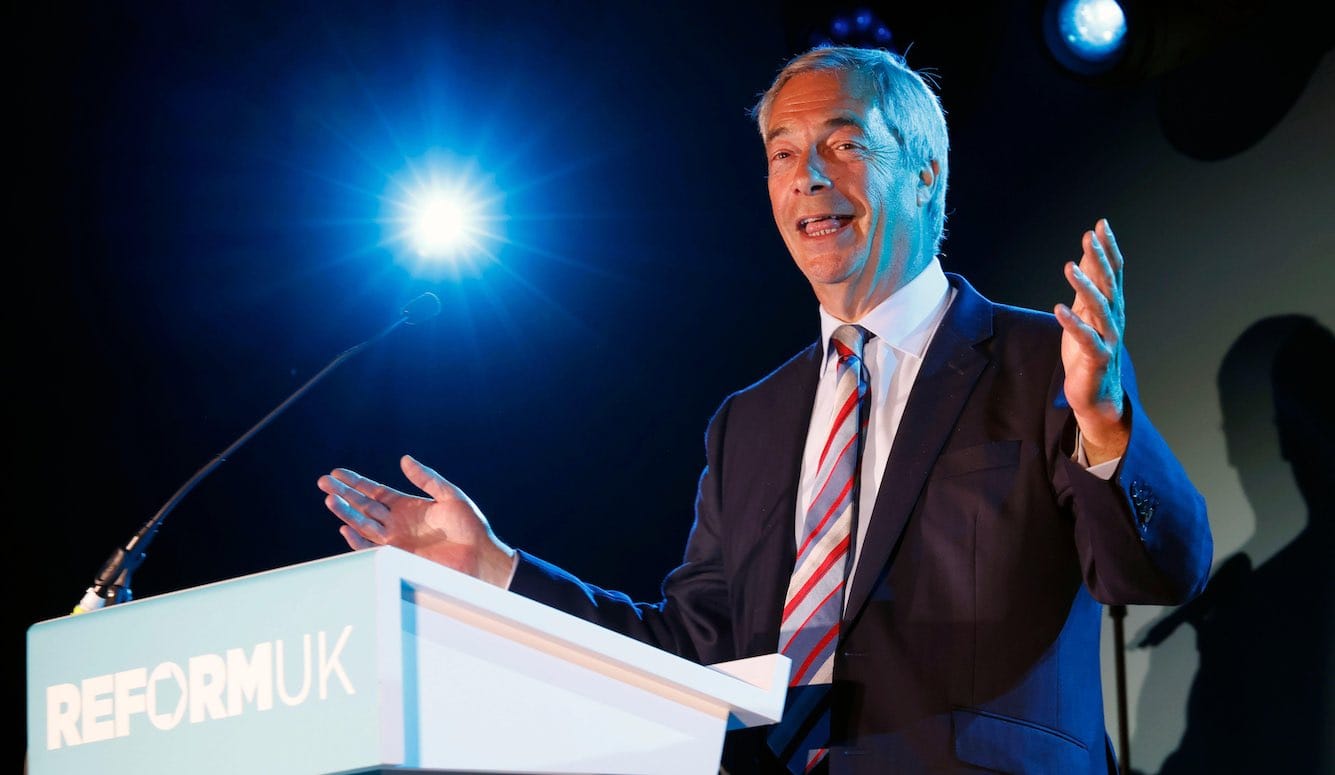Politics
Out with the Old...
Forecasts that Nigel Farage will become UK prime minister now attract expressions of anxious concern not mockery from the liberal commentariat.

A full audio version of this article can be found below the paywall.
One of the the oldest political parties in the world may not be around very much longer. The British Conservative Party emerged, loosely organised, from a turbulent late 17th century, during which Protestantism triumphed over Roman Catholicism in both church and parliament. The “Tories” (as they are still known today) objected to the exclusion of the Catholic James II from kingship, since the crown was rightfully his by birth. They were not, however, pro-Catholic—their objection rested on a point of principle that party members felt honour-bound to uphold. But four centuries later, the Conservative Party is in danger of disappearing. That is, admittedly, a large claim, and it may be too large or at least premature. Still, Andrew Marr, a veteran political analyst and one of the UK’s keenest commentators, recently floated this possibility for the first time in his life in an article for LBC.





